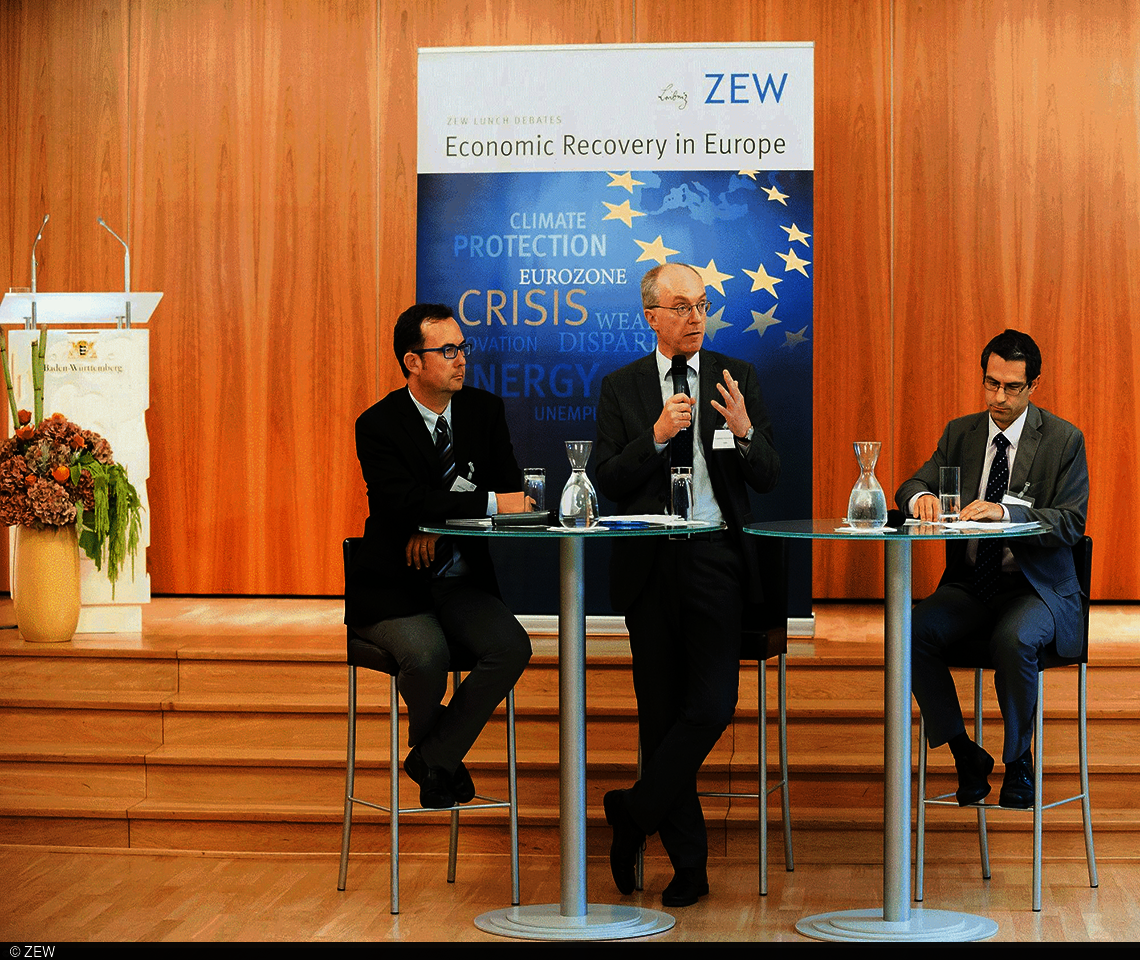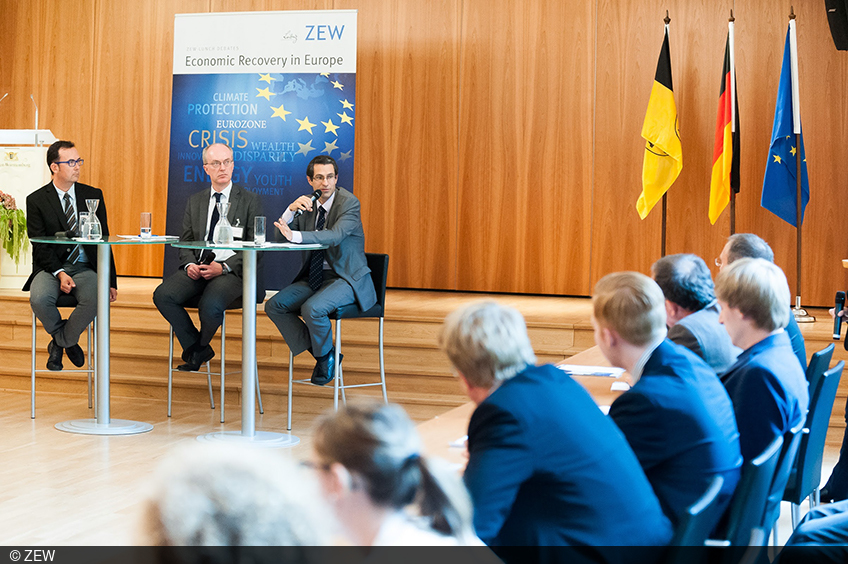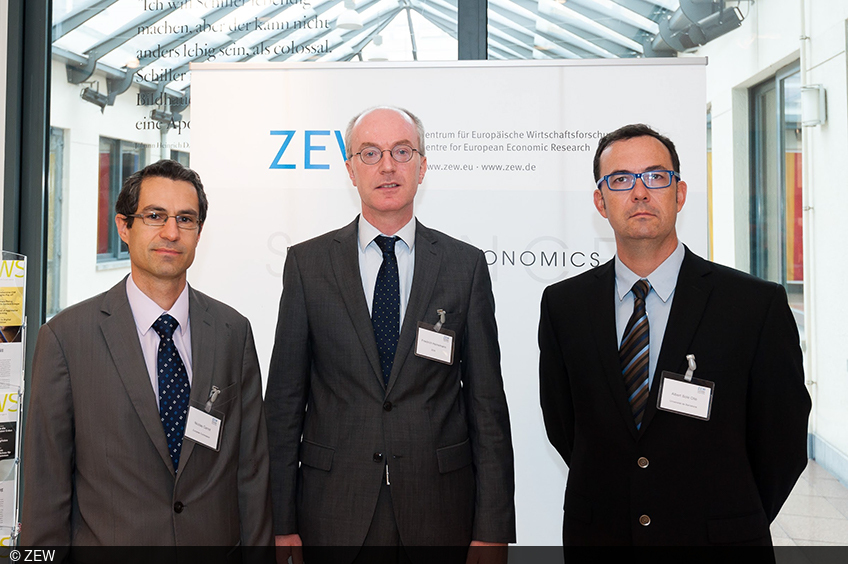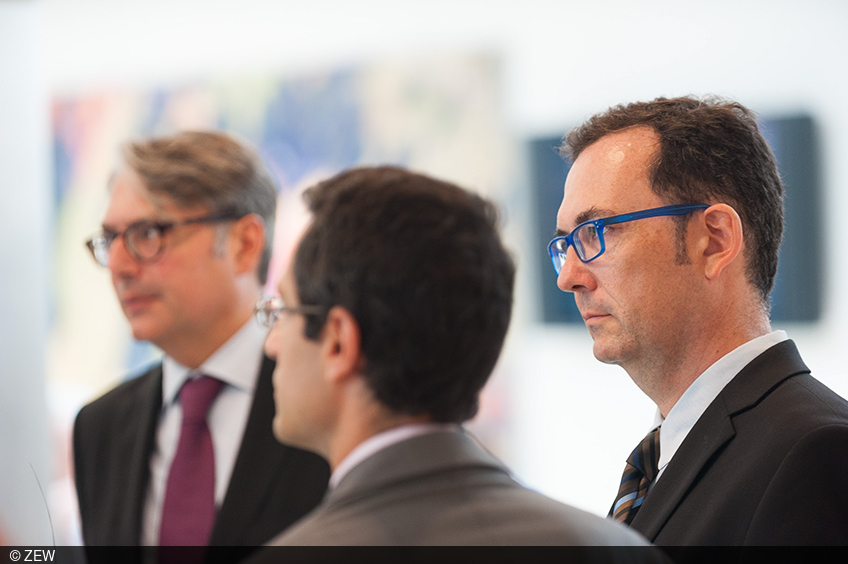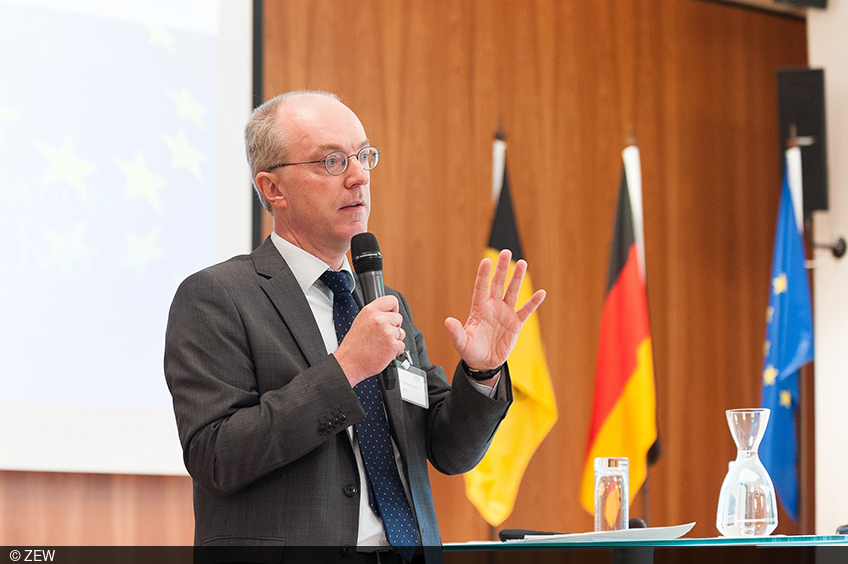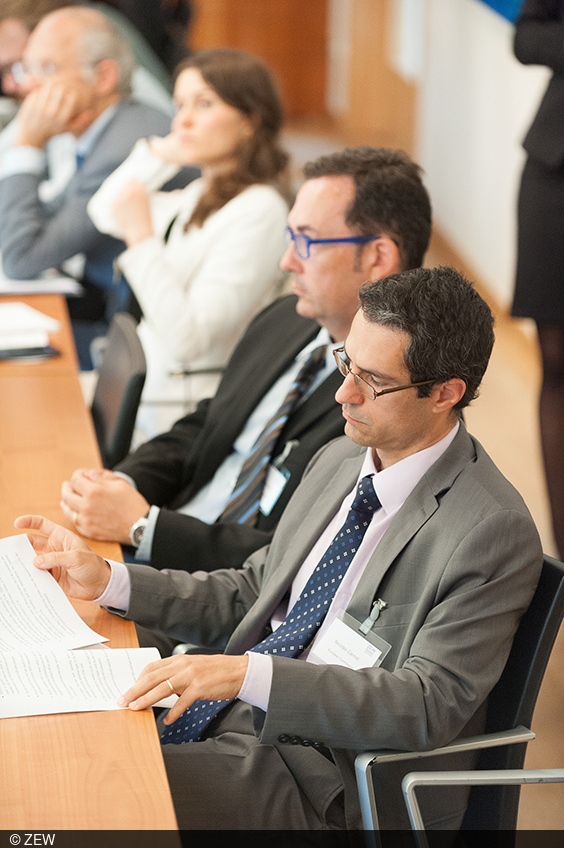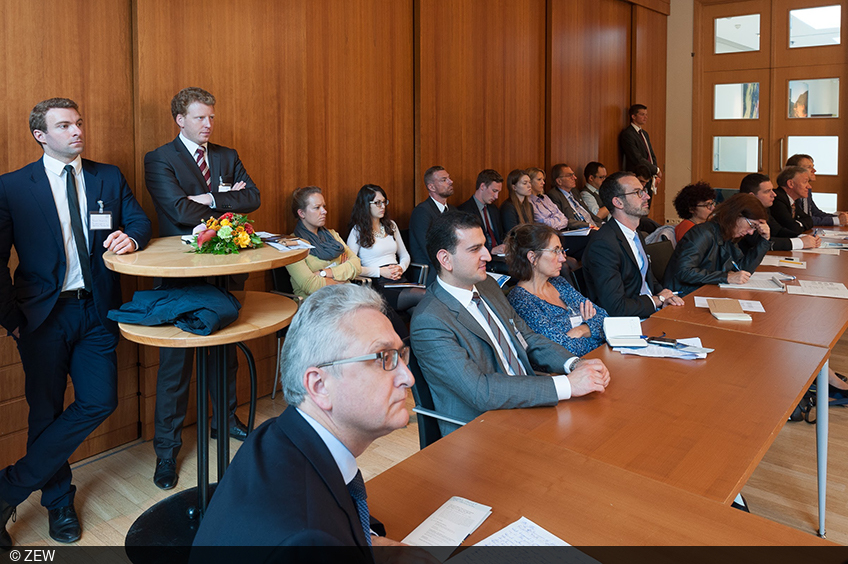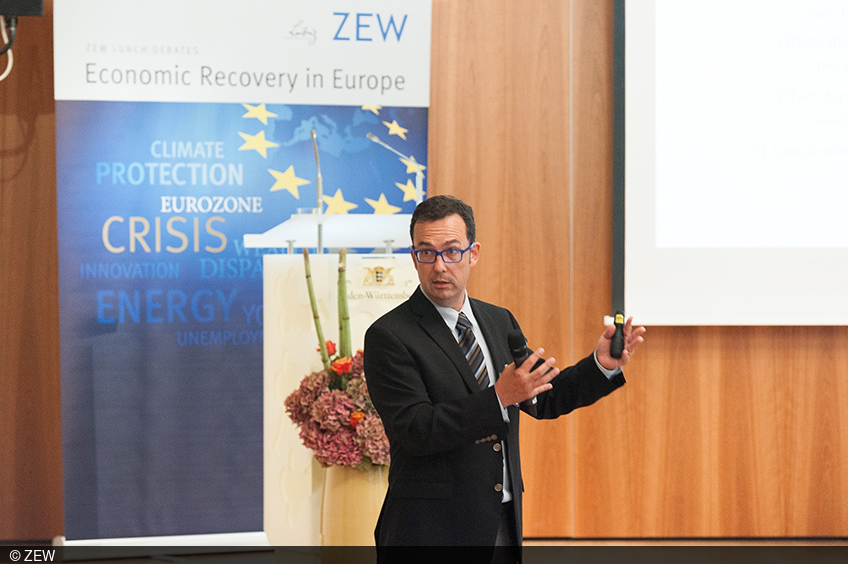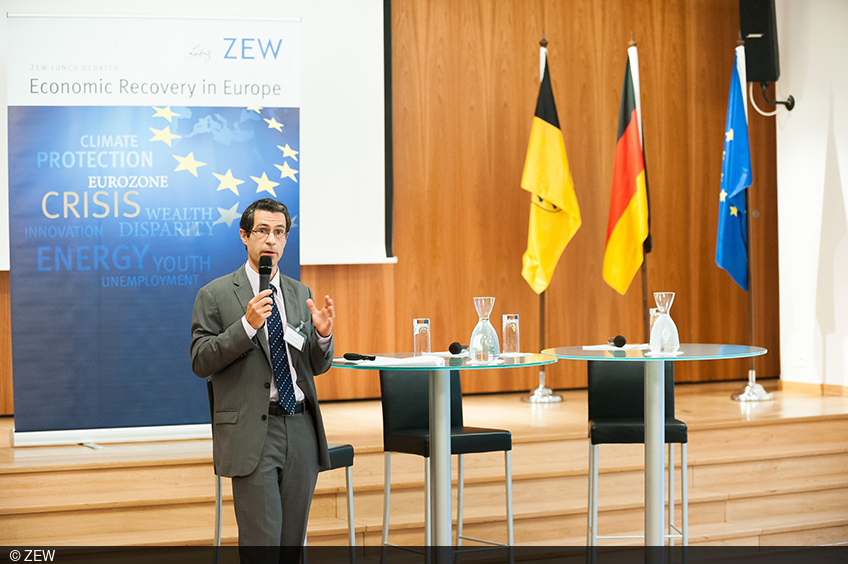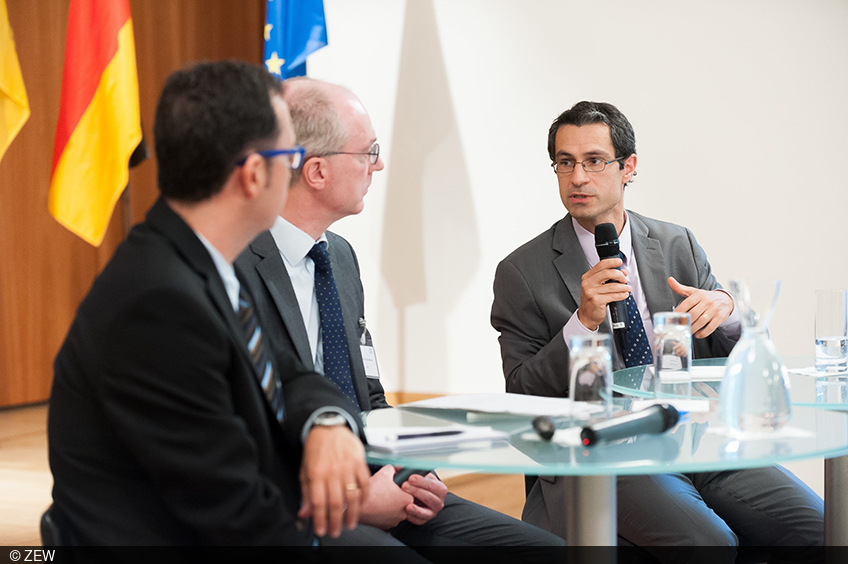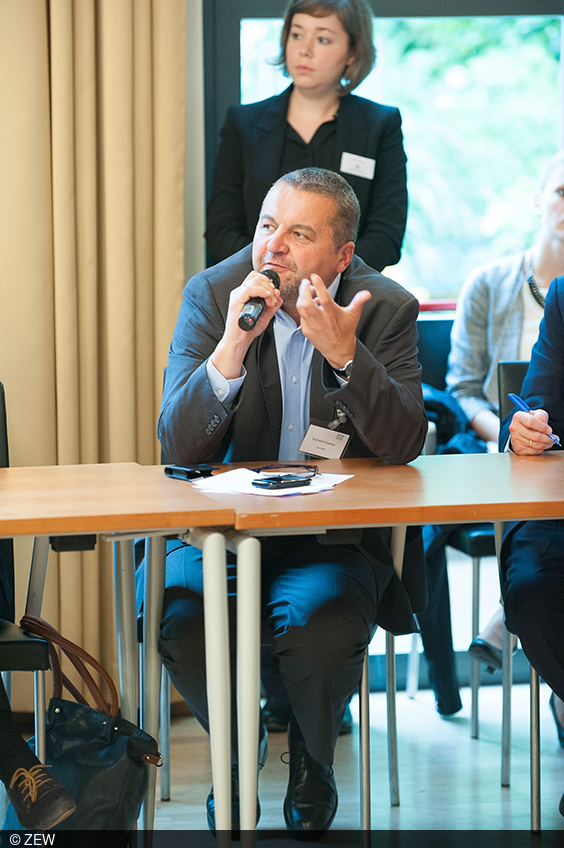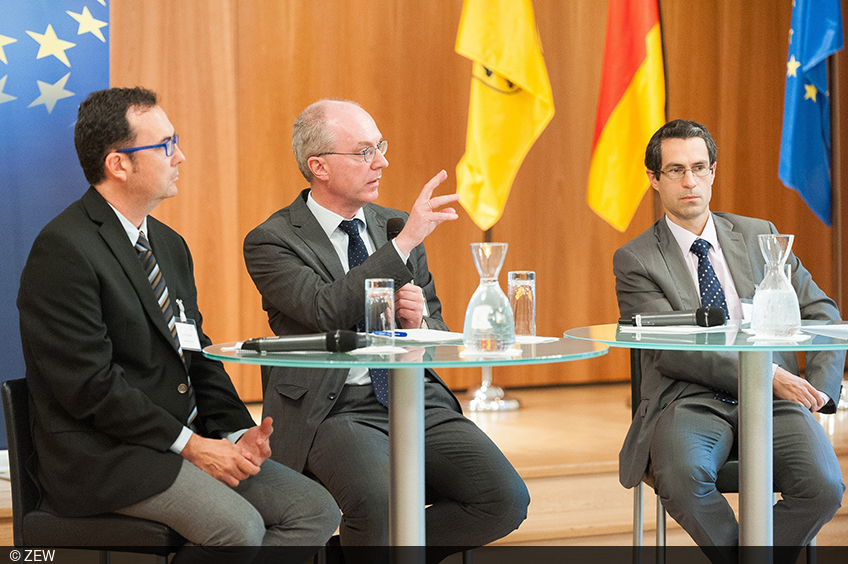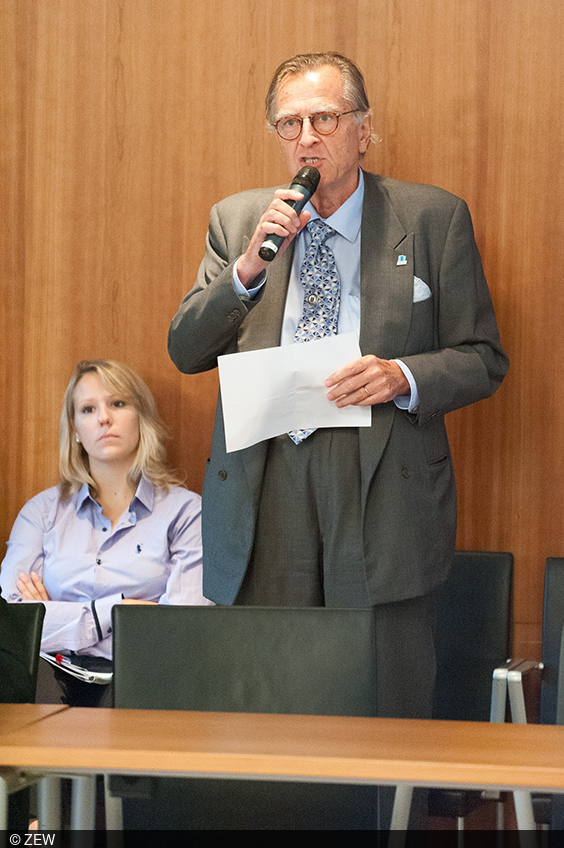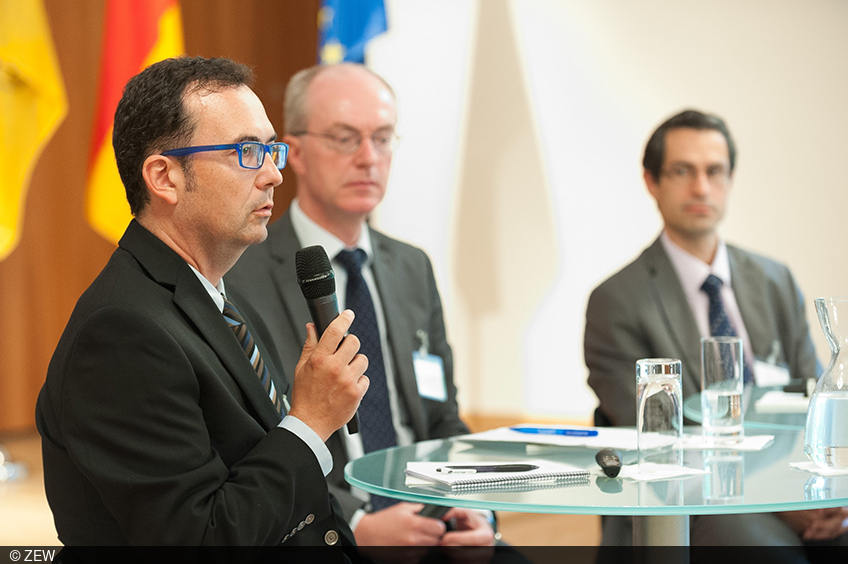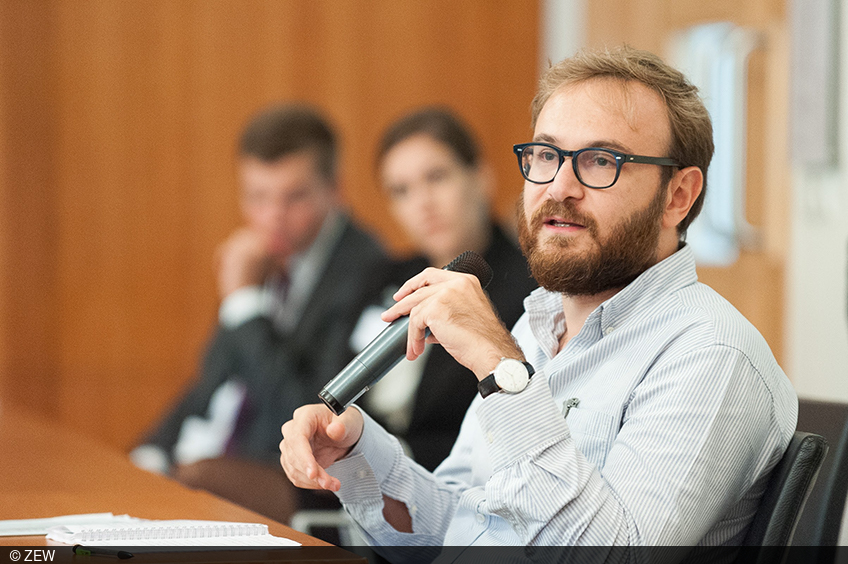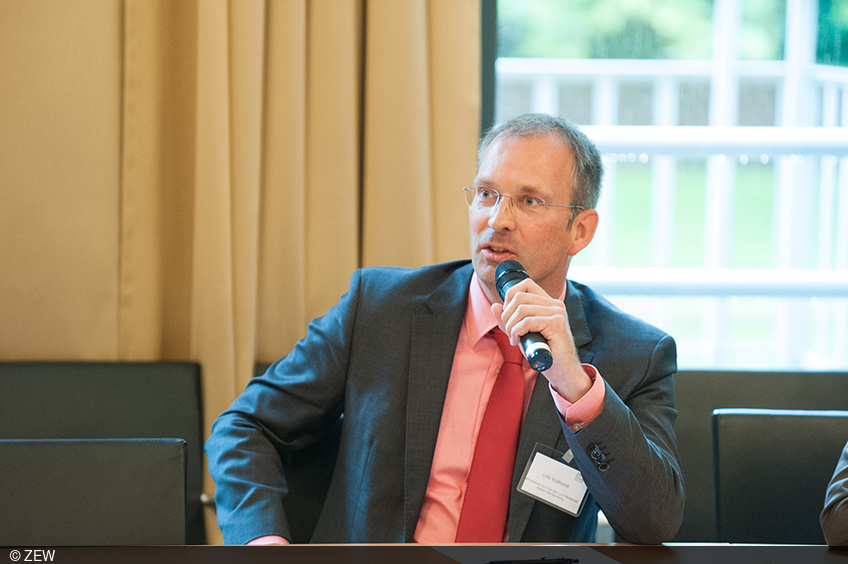ZEW Lunch Debate in Brussels – Experts Discuss Effectiveness of Fiscal Rules in Eurozone
ZEW Lunch Debate in BrusselsThe Centre for European Economic Research (ZEW) once again held one of its regular Lunch Debates at the Representation of the State of Baden-Württemberg in Brussels in September 2015. On this occasion, the event focused on Europe's new fiscal governance. The central question concerned Europe’s new set of fiscal rules: Do they constitute a quantum leap, or are they not worth the paper they’re written on?
Johannes Jung, head of the State Representation, briefly welcomed the audience. Professor Friedrich Heinemann from ZEW then gave an introduction to the subject of debate, and presented his co-panellists: Professor Albert Solé-Ollé from the University of Barcelona and Nicolas Carnot from the European Commission, a former employee of the French Treasury and the International Monetary Fund.
In his presentation, Heinemann pointed out that the financial crisis, which broke out five years ago, has brought about numerous changes and additions to the eurozone's fiscal governance. Instruments such as the Stability and Growth Pact, he noted, have undergone substantial reforms, and many other innovations, such as the European Fiscal Compact, have been set up. "The Maastricht Treaty was initially designed as a two-pillar system based on market discipline and fiscal governance. Over time, however, violations of fiscal rules have gone unpunished, and market discipline has eroded. This created severe economic problems, particularly for highly-indebted eurozone countries, at the outbreak of the financial and economic crisis. As a consequence, the fiscal regime was significantly enhanced," explained Heinemann, outlining the developments which have taken place since the beginning of the eurozone crisis in 2010. In his opinion, however, the question must be asked as to whether these fiscal governance innovations actually work.
According to Heinemann, some of the answers to this question are provided by a meta-study carried out by ZEW which examines the effectiveness of fiscal governance in the eurozone on the basis of 41 international studies. The results of the study, he claimed, indicate that tougher fiscal rules indeed make a considerable difference. There is evidence to suggest that the effects on national spending behaviour and the size of the structural budget deficit are particularly significant.
Heinemann also pointed out, however, that due to the eurozone crisis, several key aspects were not fully taken into account when previous reforms were introduced. The eurozone countries, for example, have thus far not been obliged to focus on deficit reduction, debt repayment, or even the reduction of national debt, where soaring government revenues or particularly favourable financing conditions have made this possible. The ZEW researcher also emphasised the essential role of administration when setting up reforms designed to overcome the financial crisis. In his view, however, large and influential administrative structures built in times of economic prosperity seem to impede necessary reform processes rather than advance them. In such a situation, he adds, the high administrative costs become an additional burden on the national budget.
Albert Solé-Ollé emphasised that the origins of many problems which manifested themselves during the crisis are to be found in periods of strong economic growth. "It has become apparent that in good economic times, the government tends to significantly increase spending in areas where it is hard to make cut-backs at the end of the boom," says Solé-Ollé. As an example, he referred to the boom in Spain's construction sector. From 1995 to 2007, this had generated a budgetary surplus which was much higher than expected, and which benefited all levels of government (central, regional, local). A much too small share of these revenues, however, was invested in sustainable projects or used to reduce the national deficit; it was assumed that the construction boom would continue. When the crisis hit Spain, budget deficits rocketed as local and regional governments had taken far too few austerity measures and had committed themselves to excessively high levels of spending. Some municipalities, he said, seem to have made better provisions during good times than others, and therefore had a much lower fiscal deficit at the outbreak of the crisis. According to Solé-Ollé, the crisis showed that the eurozone's fiscal governance needs to place greater focus on ensuring that all levels of government prepare for difficult times whilst the economy is thriving.
Nicolas Carnot started his address by pointing out that he could not speak on behalf on the European Commission, but that his remarks were based on his own long-term international working experience. Referring back to the research results already presented, Carnot addressed three aspects he considered particularly noteworthy.
First, he stressed that fiscal governance should incentivise sustainable budgeting, even in good economic times – a largely undisputed notion, Carnot said. However, he explained, the difficulty lies in identifying such “good times”.
Considering the way in which large bureaucracies impede the reform process in times of crisis, Carnot suggested that too much focus has been placed on levels of public debt and their reduction. Rather than placing such great emphasis on the macro-level, he argued, the micro-level should be taken more into account, acknowledging the various levels of governmental bureaucracy.
Carnot’s third point considered the role of transfers between eurozone countries, as well as between the EU and its member states. He underlined the importance of distinguishing between common economic shocks, which affect all countries, and asymmetric shocks which only impact certain regions. In the event of a common shock, a transfer system may no longer function as a form of insurance, as all countries are suffering the same negative effects. To avoid this scenario, transfer systems should feature fiscal rules which oblige countries to reserve funds in times of economic prosperity, as a form of insurance in the case of common economic shocks.
Once again, the Lunch Debate concluded with a discussion session, during which participants had the opportunity to ask questions and share their thoughts. Discussion considered, for example, how confidence in the stability of the eurozone should be restored and to what extent countries affected by crises, such as Spain, have so far managed to implement reforms.
Further information on the ZEW Lunch Debates series as well as on upcoming events
